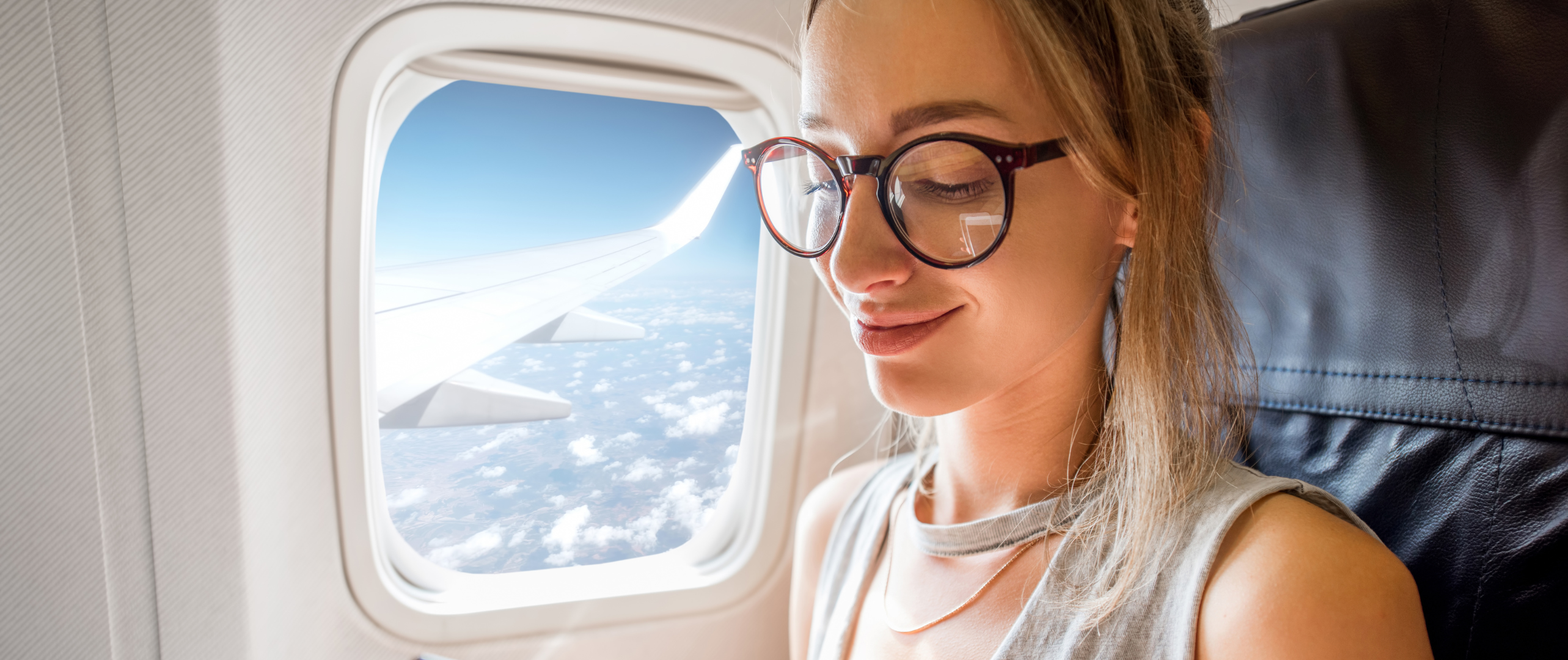Flying has become an integral part of modern life, enabling us to traverse great distances in a matter of hours. However, along with the convenience of air travel comes a range of discomforts, and one of the most common complaints is dry skin. Whether you're a frequent flyer or just embarking on a long-awaited vacation, understanding why flying can cause dry skin is essential to mitigating its effects and ensuring a more comfortable journey.
Who knew low humidity levels typically range from 10% - 20% in aircraft cabins and could cause dry skin. To put this into perspective, the humidity in our homes averages around 30% to 50%. This lack of moisture in the air can quickly dehydrate your skin, leading to that tight, itchy feeling commonly experienced during flights.
Even the air circulating within an aircraft cabin is often recycled rather than fresh. This recycled air undergoes a series of processes, including being cooled and depressurized, which further reduces its moisture content. As a result, prolonged exposure to this dry, recycled air can strip away your skin's natural oils, leaving it vulnerable to dryness and irritation.
Flying at high altitudes not only causes "airplane ear", it also exacerbates the issue of dry skin. As the aircraft ascends, the air pressure decreases, causing the moisture in your skin to evaporate more rapidly. Additionally, the lower oxygen levels at higher altitudes can affect your body's ability to produce sebum, the natural oil that helps keep your skin hydrated.
While it may not be immediately apparent, exposure to ultraviolet (UV) radiation during flights can also contribute to dry skin. Aircraft windows do not fully block UV rays, and at higher altitudes, the atmosphere provides less protection against UV exposure. Prolonged exposure to UV radiation can damage your skin's lipid barrier, leading to increased moisture loss and dryness.
I always felt thirsty after a flight and it may be because many travelers like myself, fail to adequately hydrate during flights, whether due to limited access to water or a desire to avoid frequent trips to the lavatory. Dehydration not only affects your overall well-being but also manifests visibly in the form of dry, lackluster skin. It's essential to drink plenty of water before, during, and after your flight to help combat the dehydrating effects of air travel.
Skincare Tips for Flying:
- Hydrate from the inside out by drinking water regularly before and during your flight.
- Apply a rich moisturizer or hydrating serum to your skin before boarding the plane. We recommend our Antioxidant Facial Moisturizer $14.99 and Nourishing Neem Facial Serum $21.99


- Use a hydrating facial mist throughout the flight to replenish moisture and refresh your skin. We recommend our Antioxidant Facial Toner $9.99

- Avoid alcohol and caffeine, which can contribute to dehydration.
- Consider using a humidifying nasal spray to keep your nasal passages moist and prevent discomfort.
To learn more visit 103collection.com


